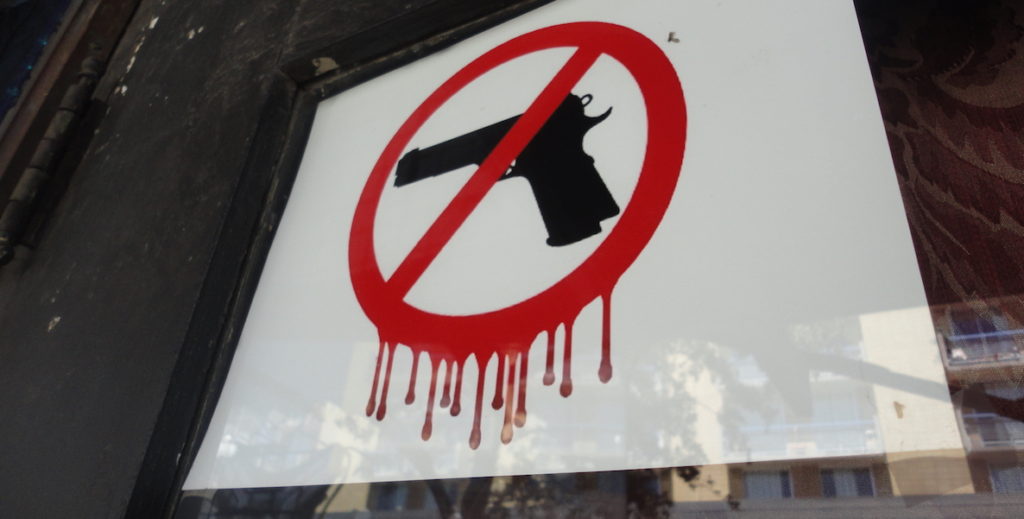One day, President Donald Trump sounds like a gun control advocate. The next, he’s reading NRA talking points. Meantime, here in Pennsylvania people are more interested in blessing assault-style weapons than banning them.
Be Part of the Solution
Become a Citizen member.But how about just in Philadelphia? Couldn’t we enact tighter gun control laws on our own? History would say no. We’ve tried before, and the city’s changes didn’t hold up in the courts. But this is a different time. The fervor for increased gun control has reached fever pitch; Philly’s district attorney is stringently anti-gun; and the state Supreme Court, leaning left for the first time in years, just made a landmark decision on gerrymandering.
“Maybe that’s a litmus test, showing that the Court is open to some positive change in the world,” says Scott Sigman, an attorney who represented the city in an earlier gun control case.
Yeah, but they didn’t beat the Pennsylvania legislature: The General Assembly crafted a law repealing Philly’s ban. Ortiz and Council filed a lawsuit seeking to invalidate the law, and the Supreme Court ruled against them in 1996. The judges said Pennsylvania’s Uniform Firearms Act preempts local ordinances.
Councilman Darrell Clarke (not yet Council President) ran into the same wall in 2007. That spring he spearheaded legislation banning the sale and possession of assault weapons, forcing gun buyers to register and renew their registration on an annual basis and limiting handgun purchases to once a month. The law would also require the reporting of lost or stolen firearms.
“He did his best, put together what we believed were basic common sense regulations,” Sigman says. “I wouldn’t really call it gun control. Common sense regulations is the best way I could describe it. My God, you have to report if a gun is stolen! Not really rocket science here.”
The bill passed unanimously. But it included a clause signaling the laws wouldn’t go into effect unless the city was successful in challenging the state’s ability to pre-empt local gun control with the Uniform Firearms Act. Clarke and former Councilwoman Donna Reed Bullock filed a lawsuit to overturn the Uniform Firearms Act. It didn’t go over well: The Commonwealth Court ruled against them, and the Supreme Court wouldn’t even hear the case.
Couldn’t we enact tighter gun control laws on our own in Philadlephia? History would say no. We’ve tried before, and the city’s changes didn’t hold up in the courts. But this is a different time.
These decisions were sharp rebukes. Attorney Sam Stretton, who represented Ortiz in 1996, said the state’s pre-emption doctrine generally holds strong. But the door wasn’t slammed entirely. Stretton notes that it might be easier to prove certain local regulations wouldn’t conflict with the Uniform Firearms Act, such as a ban on bump stocks. Philadelphia, unlike the rest of the state, already has a law requiring a license for gun owners who openly carry, as well as ordinances that ban guns from city-owned properties and from people subject to protection from abuse orders, and that require the reporting of lost or stolen firearms. The NRA has been unsuccessful in challenging these laws.
Stretton calls the current Supreme Court “innovative.” And don’t forget Larry Krasner. Philly’s progressive District Attorney has discussed wanting to use the office as “a bully pulpit” to promote reasonable gun control measures.
But local gun control would have to begin with Council passing new laws for a third time. A spokesperson for Clarke did not respond to a request for the Council President to speak about taking another pass at local gun control.
“[Councilman Clarke] did his best, put together what we believed were basic common sense regulations,” Sigman says. “I wouldn’t really call it gun control. Common sense regulations is the best way I could describe it. My God, you have to report if a gun is stolen! Not really rocket science here.”
Yes, there have been changes on the Supreme Court, but any renewed gun control effort by Council would face a new risk with the Legislature. Rob Conroy, director of organizing for CeaseFire PA, warns a House bill and Senate bill under consideration would allow individuals and special interest groups to sue any municipality for passing a law about guns differing from the state’s Firearms Act. If one of these bills becomes law, Philly could conceivably face dozens of lawsuits from across Pennsylvania just for trying to enact change.
But think of what Justice Nigro wrote in his dissent 22 years ago: “It is fundamentally essential that the local government enact legislation to protect its citizens whenever the state legislature is unable or unwilling to do so.” The legislature is less than unwilling. It’s hostile.
Stretton has been a gun opponent for decades. After serving in the U.S. Army as a captain he returned his Colt 45 and hasn’t touched a gun since, aside from when guns are an exhibit in the courtroom. He’s seen so many senseless killings in his line of work and would love a case where the focal point is the weapon itself, rather than another dead body.
“I would try it again,” he said. “If a Councilman came up and asked me to do it, I would make the effort.”

